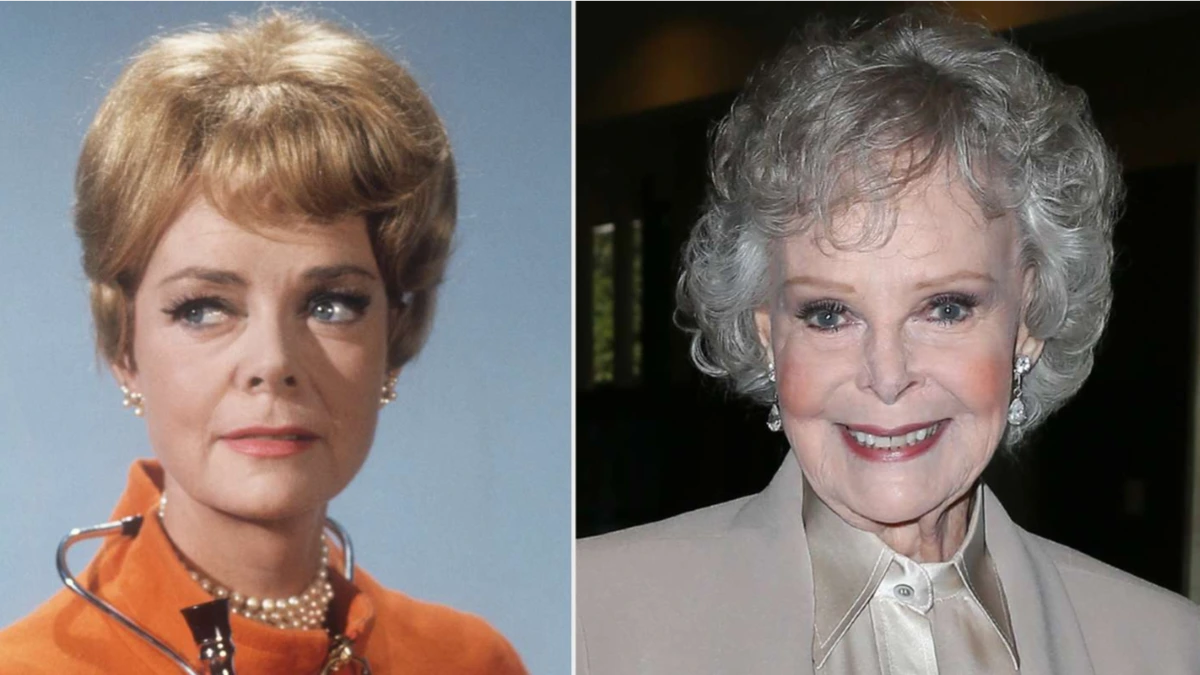SANTA MONICA, Calif. — June Lockhart, the soft spoken actress whose warmth and composure defined the American television mother for generations, died Thursday at her home in Santa Monica. She was 100.
Her death was confirmed by her spokesman, Harlan Boll, who said she passed away peacefully surrounded by family.
Lockhart, best known for her portrayals of nurturing matriarchs in the family adventure series Lassie and the science fiction classic Lost in Space, became an enduring symbol of maternal grace and quiet strength during television’s formative decades.
Born in New York City in 1925 to actors Gene and Kathleen Lockhart, June Lockhart seemed destined for the stage and screen. Her first major film appearance came in A Christmas Carol (1938), in which she played alongside her parents.
But it was television that cemented her place in American pop culture. In 1958, Lockhart replaced Cloris Leachman as Ruth Martin, the compassionate farm wife and foster mother to young Timmy (Jon Provost) and his loyal collie, Lassie.
Her tenure on Lassie lasted six years, during which she brought to life a motherly calm that resonated deeply with postwar audiences seeking stability and moral clarity in family entertainment.
“She was America’s mother at a time when television was shaping what family looked like,” said media historian Dr. Elaine Roberts of UCLA.
Her characters embodied kindness, steadiness, and integrity qualities viewers craved during the social changes of the 1950s and 1960s.
In 1965, Lockhart ventured into new territory with Lost in Space, portraying Maureen Robinson, a mother and scientist stranded on a distant planet.
The show, though often campy in tone, became a cult favorite, balancing futuristic adventure with family values that Lockhart once again anchored.
Entertainment analysts credit Lockhart’s success to her ability to evolve with television’s shifting landscape from pastoral simplicity to outer space exploration while maintaining emotional authenticity.
“June Lockhart bridged eras,” said Richard Fields, a television critic for Variety. “She transitioned from black and white Americana to the colorful chaos of science fiction, and she made both worlds believable because she brought genuine emotion to every scene.”
Lockhart’s career also reflected the growing visibility of women in television as authoritative yet nurturing figures. While her characters often operated within traditional family structures, they exhibited independence and intelligence uncommon for their time.
“She was more than a background mother figure,” Fields added. “Her characters often guided moral direction and practical problem solving traits that quietly redefined women’s roles in television narratives.”
Lassie, which ran for nineteen seasons from 1954 to 1973, became one of the most-watched and longest running shows in American television history.
During Lockhart’s years on the series, its viewership regularly ranked in the top 10 Nielsen ratings. Similarly, Lost in Space captured a new generation’s imagination with its mix of family drama and science fiction.
The series aired from 1965 to 1968 and has since spawned multiple revivals, including a Netflix reboot in 2018. Lockhart made cameo appearances in later versions, underscoring her lasting influence on the franchise.
According to the Television Academy, Lockhart’s contributions extended beyond acting. She was a two time Emmy nominee and received a Tony Award for her Broadway debut in For Love or Money at age 22, a category that has since been retired.
Tributes from fans and colleagues flooded social media following news of her death. Bill Mumy, who played her on-screen son in Lost in Space, described Lockhart as “a second mother off camera as much as on.”
“She had this calming energy,” Mumy said in a statement. “Even when things got chaotic on set, June was the heart that kept us grounded.”
In Santa Monica, neighbors remembered her as approachable and humble. “You’d never know she was a Hollywood legend,” said neighbor Claire Donovan. “She’d walk her dog in the mornings, chat with everyone, and always ask how your kids were doing.”
Film historian Robert Daniels noted that Lockhart represented a bridge between generations of actors. “She carried the torch from Hollywood’s golden age to television’s rise,” he said.
“Her legacy is intergenerational not just because of her longevity, but because of how many people she inspired.” Lockhart’s influence continues to ripple through modern entertainment, where depictions of mothers on screen have grown more complex and diverse.
“Without June Lockhart, there’s no Carol Brady, no Marion Cunningham, no Joyce Byers in Stranger Things,” Dr. Roberts said. “She set the blueprint for portraying mothers as multidimensional, compassionate, and quietly strong.”
As Lost in Space and Lassie continue to stream on digital platforms, a new generation of viewers is discovering her work.
Media analysts predict renewed interest in her performances as nostalgia driven programming gains traction on streaming services.
June Lockhart’s century long life and seven decade career reflected both the evolution of American television and the timeless appeal of empathy on screen.
From the farm fields of Lassie to the galaxies of Lost in Space, she brought dignity, intelligence, and heart to every role.
“June Lockhart didn’t just play mothers,” Fields said. “She became one for an entire nation watching from their living rooms.”
